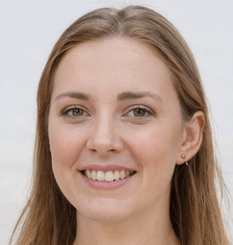Africare, fittingly, was conceived in Africa — in the Republic of Niger.
Niger had gained independence in 1960, and Hamani Diori became its first president: an office he held until 1974. By 1970, drought was raging in Niger and the suffering was extreme. Two Americans — William O. Kirker, M.D., and his wife, Barbara (a nurse), who had worked at Niger’s Maine-Soroa Hospital since 1966 — sought to help by forming a charity “to provide medical services and health care to the people of Africa, beginning in … Niger.” That charity, named “Africare,” was incorporated in Hawaii on Sept. 20, 1970. Diori endorsed the venture. Bill Kirker became its president.
Within months, Diori and Kirker saw that the fledgling Africare needed to regroup. C. Payne Lucas, then director of the Peace Corps Office of Returned Volunteers in Washington, had known the president of Niger for some years. Diori sent Oumarou Youssoufou, a diplomat from the Nigerien embassy in Washington, to recruit Lucas to help. Also joining the Africare working group was Joseph C. Kennedy, Ph.D., former Peace Corps director in Sierra Leone.
What emerged was a reconstituted Africare:
- It would support, not only health work, but all types of development and relief programs.
- It would assist, not only Niger, but any African country.
- And significantly, it would serve as a bridge between Africans and Americans, especially Americans of African descent.
In May 1971, “the new Africare” was permanently reincorporated in Washington, D.C. Diori (as chairman), Kennedy, Kirker, Lucas and Youssoufou were the founding Board members. Lucas took the helm as executive director. The Embassy of Niger donated office space. Aid to the Maine-Soroa Hospital became Africare’s first project — soon followed by drought relief in six countries.
More Africare history
Early 1970s: “The task undertaken by Africare is immense”
Late 1970s: “Courage to stand firmly against great odds”
Early 1980s: “We need Africare to spread all over Africa”
Late 1980s: “A crucial threshold”
Early 1990s: “I profoundly believe in Africa”
Late 1990s: “The cusp of a new millennium”
Since 2000: “There are no Africare programs, only African programs”

Barbara Meier schreibt seit vielen Jahren für die NPAlliance Ratgeber und Testberichte. Dabei legt sie großen Wert auf die Ausführlichkeit sowie Richtigkeit ihrer Artikel. Sie zählt zu den wenigen Experten in ihrem Gebiet und hat sich über die letzten Jahren einen Namen in der Gesundheitsbranche gemacht.
